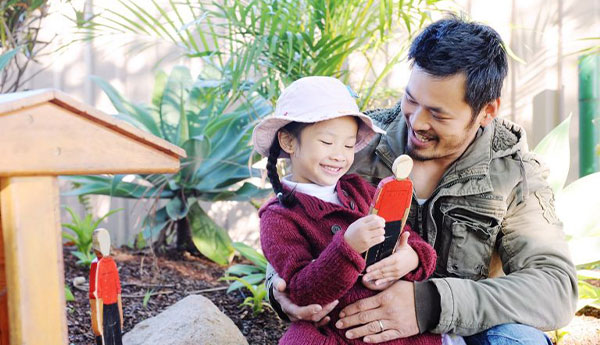
Babies and young children’s brains are primed to process sounds to learn language and are able to simultaneously learn more than one language.
Children start
learning language from before birth through their interactions with parents and the people around them. In a household where English is not the first language, your child can still practice and develop their first language while learning Standard Australian English.
Learning Standard Australian English from an early age can help children communicate with others from various cultural backgrounds within Australia and learn at school.
Sounds
Learning a language relies on processing different sounds. At birth, a child’s brain is able to learn the language they are exposed to. Gradually, babies will understand which sounds they are hearing the most and this will form their early language knowledge.
Learning multiple languages
In the early years, a child can either develop a simultaneous understanding of 2 languages (if 2 languages are spoken regularly by native speakers from birth) or can develop the foundations of language by learning one language and then learning another.
By the age of 3, children have already developed language skills and are able to communicate in the language learnt from their parents. From this initial understanding of language, your child has developed and practiced communication skills which can be transferred to learning a second language.
It is important for adults to clearly differentiate between languages they are using and for children to develop their first language as well as Australian Standard English.
Especially when the child’s first language is a language that may have similarities to English (such as Creole). The skills developed while learning a first language provide an understanding of language and communication skills that can then be utilised while learning a second language (for example, learning Australian Standard English at a care and education service).
Being able to communicate with you in your native tongue can also help strengthen family and community relationships.
Fun ways to learn
Music can be a fun and engaging way for children to learn simple sentences and phrases in a new language. You can practice new words with your child while playing, talking, reading or even telling a story together.
Parents
Parents interested in learning English to support their child’s learning can find more information on the
Queensland Government website.